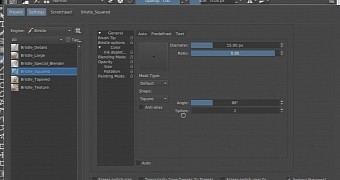Now that Krita 3.1 launched as the latest stable release of the 3.x series, the development team of the popular, open-source and cross-platform digital painting software shared with us some of the plans for upcoming releases.
According to the devs, who are currently working on fixing bugs reported by users from the current Krita 3.1.x stable branch, the next major release of the application might be 3.2 or even 4.0 if the new features that are about to be implemented are of massive interest to the Open Source community.
"We will continue releasing bug fix versions of Krita 3.1.x until it’s time to release 3.2 (or maybe 4.0…). And, as with 2.9, some bug fix releases might even contain new features, if they’re small and safe enough. But we’ll also start making development builds soon, and there’s also the daily build for Windows," said the devs in the announcement.
Here's what's coming in Krita 3.2, or Krita 4.0
Among the exciting new features that'll be coming with the Krita 3.2 or Krita 4.0 major releases, we can mention Lazy Brush, an interactive colorizing tool that can already be enabled in Krita 3.1 if you add the "disableColorizeMaskFeature=false" option to the kritarc file in your config directory. But it's algorithm is too slow to be useful, for now.
They are also working on improving the palette handling for future Krita releases, and it looks like support for two new palette formats will be added, and palette editor will be rewritten in Python. Furthermore, the brush editor will be revamped to allow configuration of stacked brushes (see the attached screenshot for details on that).
There'll also be Python scripting support, allowing you to run various scripts written in Python, especially if you're using a GNU/Linux distribution, as the development team needs to find a way to build and bundle Python on macOS and Windows platforms. SVG (Scalable Vector Graphics) support is also coming soon to Krita, along with new Text Tools and the rewriting of the reference images Docker.

 14 DAY TRIAL //
14 DAY TRIAL //